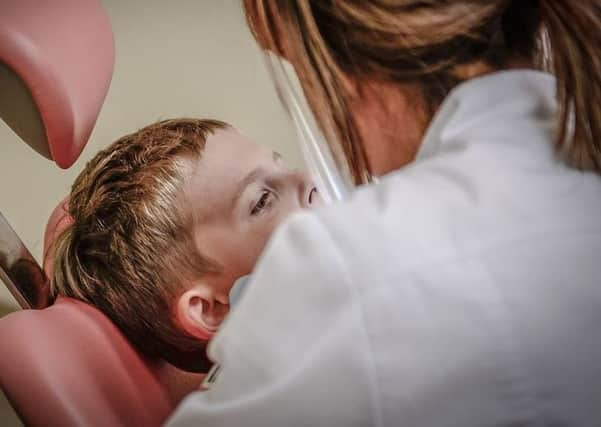Many five-year-olds in Horsham suffer from tooth decay


And thousands of children nationally have had teeth extracted - often requiring a trip to hospital and an operation under general anaesthetic.
With rates of tooth decay varying wildly for children in different parts of the country, dental experts have called the situation a ‘tragedy’.
Advertisement
Hide AdAdvertisement
Hide AdThe results were based on a survey of 48 five-year-olds in Horsham in the 2016-17 academic year, and 96,000 nationally.
The survey found tooth decay in 4.4% of children - suggesting that around 70 five-year-olds in the area may be suffering with dental problems.
The rate was significantly lower than that across the rest of the South-East, with 16.4% of five-year-olds in the region experiencing tooth decay - either present at the time of the investigation, or evident because of missing or filled teeth.
Those children in Horsham who were affected by tooth decay often had widespread issues, with multiple teeth affected.
Advertisement
Hide AdAdvertisement
Hide AdAlthough none of the sample group of children in Horsham had needed a tooth out, across the South-East, 1.7% of five-year-olds had required an extraction.
As high-street dentists are unable to administer a general anaesthetic, this normally requires a hospital visit.
Nationally, over 160,000 five-year-olds had tooth decay, and more than 17,000 children had teeth extracted - costing the NHS in England over £36 million a year.
The highest rate of tooth decay was in Pendle, Lancashire, where nearly half of children had evidence of decay.
Advertisement
Hide AdAdvertisement
Hide AdIn Horsham, West Sussex, just 4.4% of five-year-olds had tooth decay.
The chairman of the British Dental Association, Mick Armstrong, said: “It’s a tragedy that a child’s oral health is still determined by their postcode and their parents’ incomes.
“Sadly, while cavities are almost wholly preventable, official indifference means this inequality gap shows little sign of narrowing.
“To date England has seen little more than token efforts from ministers, and not put in a penny of new money. In the face of austerity, some farsighted councils have made big strides, but their successes are not being bottled or shared.
Advertisement
Hide AdAdvertisement
Hide Ad“The NHS will keep spending millions extracting baby teeth in overstretched hospitals until policymakers step up and grasp the nettle. When programmes and policies designed in Britain have become the envy of the world, its perverse that children in England are not benefiting from them.”
Nationally, oral health among five-year-olds has been improving since the report was first issued in 2008, when 31% of children had experienced tooth decay - a figure which has dropped to 23%.
Data: https://www.gov.uk/government/statistics/oral-health-survey-of-5-year-old-children-2017